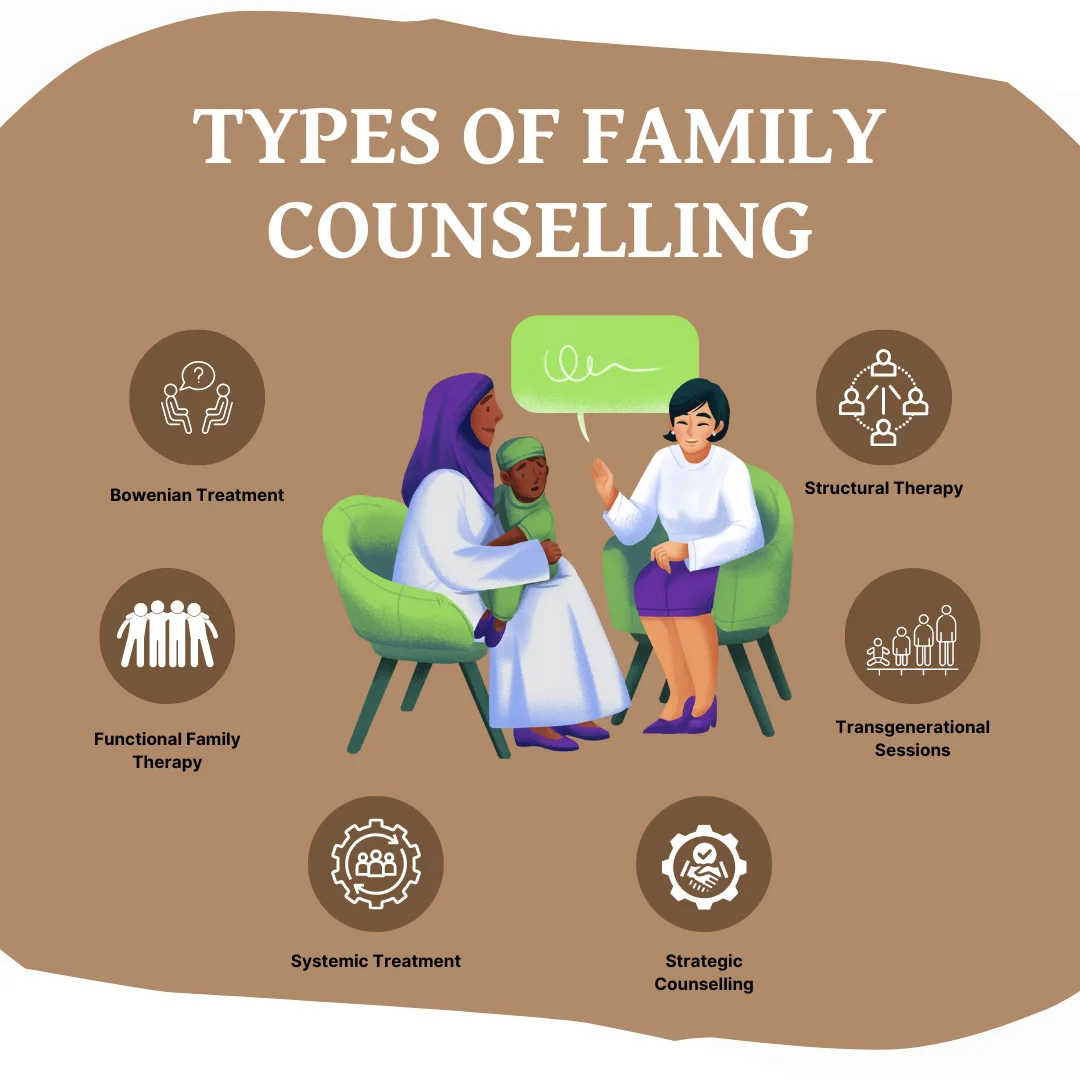Ways couples counselling online Can Rebuild Your Relationship After Conflict
Checking out the Benefits of Virtual Therapy in Modern Mental Health And Wellness Treatment
The rise of virtual therapy notes a substantial shift in mental healthcare. It provides boosted availability, permitting people from diverse histories to look for assistance without geographical constraints. Flexibility in scheduling accommodates differing lifestyles, while the convenience of home can promote visibility. The effects of these changes expand beyond mere ease. The progressing landscape of therapy raises vital concerns regarding its lasting results on client interaction and therapy outcomes.
Improved Ease of access for All
Although standard therapy commonly provides obstacles such as geographical location and organizing problems, virtual therapy substantially boosts accessibility for individuals seeking mental health and wellness assistance. By getting rid of the demand for physical travel, virtual therapy allows clients from remote locations or those with movement obstacles to link with qualified specialists. This mode of therapy can reach underserved populaces who might lack local psychological health and wellness sources, thus resolving disparities in access to care. Furthermore, virtual platforms can accommodate diverse requirements, using services in multiple languages and accommodating numerous social histories. Clients can involve with a wider series of professionals, offering them with options that straighten with their specific requirements and choices. This boosted accessibility fosters an extra inclusive setting, enabling people to look for aid without the preconception frequently associated with in-person check outs. Overall, virtual therapy stands for a significant improvement in making mental healthcare much more easily accessible to all.
Versatility in Scheduling Sessions

As virtual therapy remains to get traction, its integral flexibility in organizing sessions shows to be a significant advantage for many people. Unlike standard in-person therapy, virtual therapy permits clients to select session times that ideal fit their personal and professional commitments. This versatility suits those with requiring work timetables, household obligations, or other dedications that can make participating in physical consultations challenging.
In addition, clients can easily reschedule or change their sessions as needed, decreasing the stress connected with stiff appointment systems. The schedule of numerous time slots throughout the week, consisting of evenings and weekend breaks, further enhances availability. This flexibility not only motivates consistency present yet also cultivates a greater dedication to the healing procedure. Ultimately, the adaptability in scheduling sessions represents a transformative shift in mental health and wellness care, encouraging individuals to prioritize their health without giving up other elements of their lives.
Comfort of a Familiar Setting
The comfort of an acquainted environment substantially boosts the performance of virtual therapy for numerous customers. Taking part in therapy from the safety of their very own homes allows people to really feel even more comfortable, lowering anxiety that may go along with standard in-person sessions. This knowledge can promote open communication, making it possible for clients to share their thoughts and feelings much more openly.
The visibility of personal things and the capability to manage their surroundings can contribute to a feeling of safety and security and leisure. Clients usually report that remaining in a comfy room enables them to concentrate more on the therapeutic process as opposed to the establishing itself.
Furthermore, the informal nature of virtual sessions can aid dissolve barriers that might exist in a traditional workplace environment, fostering a deeper link with therapists. Generally, the comfort of acquainted environments plays a necessary role in improving the restorative experience and effectiveness for many individuals looking for mental wellness support.
Larger Series Of Healing Alternatives
A wider variety of therapeutic options appears with virtual therapy, enabling customers to accessibility numerous modalities that might not be feasible in conventional settings. This adaptability allows individuals to explore diverse approaches such as cognitive-behavioral therapy, mindfulness techniques, art therapy, and also specialized interventions like trauma-informed care or dialectical behavior therapy.
Customers can choose from a more comprehensive spectrum of therapists, consisting of those who specialize in specific niche areas or specific populations, boosting the possibility of discovering an ideal suit. Virtual systems commonly give accessibility to team therapy sessions, assistance communities, and workshops that may be geographically not available otherwise.
This variety encourages customers to involve in their recovery procedure according to their special choices and demands, potentially increasing motivation and commitment to treatment. As an outcome, the landscape of mental health care becomes a lot more comprehensive and versatile, catering to a wider array of individual experiences and challenges.
Minimized Preconception Bordering Therapy
Accessing therapy with virtual systems adds to a considerable decrease in the preconception traditionally connected with psychological healthcare. By offering a very discreet and private setting, virtual therapy allows individuals to seek assistance without the worry of being judged or determined. This anonymity attract those who might or else wait to pursue in-person therapy as a result of societal assumptions surrounding psychological health and wellness.
Additionally, as the occurrence of virtual therapy increases, it normalizes the discussion around mental wellness, making it a much more appropriate part of day-to-day life. Individuals typically really feel a lot more comfortable reviewing their experiences online, promoting openness and reducing feelings of seclusion. The availability of these services also motivates a more comprehensive market to involve with psychological health sources, fostering a society of assistance instead of shame. Ultimately, the rise of virtual therapy plays a vital role in improving perspectives towards looking for assistance, adding to a more approving society regarding mental website wellness obstacles.
Cost-Effectiveness and Price

Decreased Session Costs
Several individuals seeking mental health support locate that virtual therapy substantially lowers session costs compared to conventional in-person alternatives. The removal of traveling expenses and time off work frequently adds to general financial savings. Additionally, many virtual specialists offer affordable prices because of lower overhead expenses connected with maintaining a physical workplace. This change in expense permits clients to access high quality psychological wellness services without the financial strain that may feature conventional therapy. For numerous, this cost makes it possible for more regular sessions, which can improve therapy end results. Because of this, virtual therapy not only democratizes access to mental healthcare but also provides a lasting economic design that straightens with customers' budgets, making psychological wellness support much more attainable for a wider target market.
Expanded Gain Access To Choices
While conventional therapy commonly presents logistical barriers, virtual therapy greatly broadens gain access to options for people looking for psychological wellness treatment. By eliminating the need for travel and enabling flexible scheduling, virtual therapy fits diverse lifestyles and commitments. This ease of access is particularly helpful for those in remote locations or with movement difficulties. Additionally, the cost-effectiveness of virtual therapy lowers economic stress, making psychological health solutions extra obtainable. Lots of platforms provide tiered rates or gliding scale fees, promoting price. Insurance provider progressively identify virtual therapy, more enhancing its economic access. On the whole, virtual therapy not only broadens the scope of that can receive care however likewise addresses economic barriers, making psychological health support extra comprehensive and obtainable for all.
Enhanced Connection of Care
Enhanced connection of treatment becomes a considerable benefit of virtual therapy in modern-day psychological healthcare. This strategy enables patients to preserve constant interaction with their specialists, no matter of geographical barriers or organizing disputes. relationship therapy. The adaptability of virtual sessions cultivates normal check-ins, which are vital for keeping an eye on development and adjusting therapy prepares as necessary
In addition, digital wellness documents and telehealth systems help with seamless information sharing amongst treatment providers. This interconnectedness ensures that all professionals associated with a person's treatment are updated on treatment growths, leading to more worked with and efficient treatments.
Clients often experience decreased anxiety and increased involvement as a result of the ease of accessing therapy from acquainted settings. Such ease of access enhances adherence to treatment programs, ultimately enhancing results - virtual therapy. To sum up, virtual therapy not only bridges gaps in psychological health and wellness solutions but likewise strengthens the continuity of care, a vital element of successful healing connections
Frequently Asked Concerns
Just How Does Virtual Therapy Make Sure Confidentiality and Personal Privacy for Customers?
The existing inquiry addresses the procedures virtual therapy uses to secure customer privacy. Making use of encrypted platforms, secure logins, and compliance with guidelines like HIPAA, virtual therapy assurances that delicate info stays private and unattainable to unapproved individuals.
Can I Change Therapists Conveniently in Virtual Therapy?
Changing specialists in virtual therapy is normally straightforward. Customers can connect their wish for a change with the platform, permitting adaptability in discovering a better suit without the logistical difficulties of in-person consultations.
What Technology Do I Required for Virtual Therapy Procedure?
To take part in virtual therapy sessions, a private normally needs a reliable web connection, a computer or smart device with a cam and microphone, and accessibility to a secure video clip conferencing platform defined by their specialist.

Are Virtual Therapy Procedure as Effective as In-Person Procedure?
Recent studies show that virtual therapy sessions can be similarly effective as in-person sessions, depending on the individual's choices and conditions. Factors such as convenience and access might improve the general therapeutic experience for some clients.
What Should I Do if I Experience Technical Issues During a Session?
If technical issues arise throughout a session, one must steadly interact the issue to the therapist, attempt to reconnect, or switch to a back-up approach. Patience and versatility are necessary in managing these interruptions.